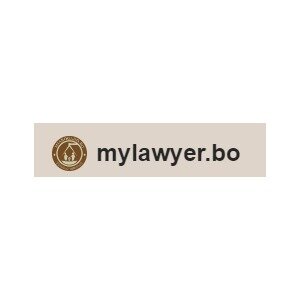Best Constitutional Law Lawyers in Sucre
Share your needs with us, get contacted by law firms.
Free. Takes 2 min.
List of the best lawyers in Sucre, Bolivia
About Constitutional Law in Sucre, Bolivia
Constitutional Law in Sucre, Bolivia, is an integral aspect of the nation's legal framework, focusing on the interpretation and application of the Bolivian Constitution as it relates to individual rights and governmental powers. Sucre, known as Bolivia's constitutional capital, plays a pivotal role in the nation’s judicial landscape. The Plurinational Constitutional Court, located in Sucre, oversees the protection of constitutional rights and the enforcement of constitutional mandates. Given Bolivia's unique political and cultural diversity, Constitutional Law is crucial in maintaining the balance between state powers and citizens' rights.
Why You May Need a Lawyer
Engaging a lawyer specialized in Constitutional Law in Sucre, Bolivia, can be necessary for various reasons. Some common situations include:
- Challenging or defending against legal actions involving constitutional rights violations.
- Interpreting legislative changes and their alignment with the constitution.
- Guidance on issues related to civil liberties, such as freedom of speech, assembly, and religion.
- Assistance in legal matters pertaining to administrative law and government regulation.
- Representation in court cases dealing with constitutional interpretations.
Local Laws Overview
Bolivia's Constitution serves as the supreme law, influencing both local and national legal practices. Key aspects of Constitutional Law in Sucre and Bolivia include:
- The recognition of Bolivia as a plurinational state, acknowledging a variety of indigenous cultures within its jurisdiction.
- The establishment of broad social rights, including access to health care, education, and housing.
- A strong emphasis on environmental protection as a constitutional duty.
- Autonomy for indigenous territories and their self-governance within the framework of the state.
- Checks and balances among the branches of government to prevent the misuse of power.
Frequently Asked Questions
What is the role of the Plurinational Constitutional Court?
The Plurinational Constitutional Court ensures the constitutionality of laws and protects individual rights against infringements.
How can I address a constitutional rights violation in Sucre?
Consult a specialized lawyer who can guide you through filing a claim in the courts to address any constitutional violations.
What are my rights regarding freedom of assembly in Sucre?
The Bolivian Constitution guarantees the right to peaceful assembly. However, authorities must be notified in advance for public gatherings.
Can local laws override the Bolivian Constitution?
No, the Constitution is the supreme law. Local laws must align with constitutional mandates and principles.
How do indigenous rights fit within the Bolivian Constitution?
The Constitution recognizes and protects the rights and autonomy of indigenous peoples within the state’s legal framework.
What should I do if I am discriminated against based on my ethnicity in Sucre?
Seek legal assistance immediately to file a complaint, as discrimination based on ethnicity is unconstitutional in Bolivia.
How are environmental rights protected by the Constitution?
The Bolivian Constitution highlights environmental conservation as a priority, aiming for harmony between development and nature.
What are the educational rights for children in Bolivia?
Education is a constitutional right, and the government is tasked with ensuring access to free, quality education for all children.
What is the constitutional position on private property in Bolivia?
The Constitution protects private property rights but also emphasizes the social function that property ownership entails.
Can I challenge a new legislation’s constitutionality?
Yes, individuals or entities can challenge new laws if they perceive violations of constitutional principles, usually through a court process.
Additional Resources
For further assistance, consider reaching out to the following resources in Sucre:
- The Plurinational Constitutional Court for official queries and processes related to constitutional issues.
- Bolivian Bar Association for finding qualified legal professionals in constitutional law.
- Human Rights Ombudsman (Defensor del Pueblo) for rights violations and advocacy.
Next Steps
If you find yourself needing legal advice in Constitutional Law, here are some suggested steps:
- Identify and document the specific legal issue you are facing.
- Consult with a constitutional lawyer who has experience in cases like yours.
- Gather all necessary documents and evidence relevant to your case.
- Consider visiting legal aid organizations for support if you are unable to afford private legal counsel.
Lawzana helps you find the best lawyers and law firms in Sucre through a curated and pre-screened list of qualified legal professionals. Our platform offers rankings and detailed profiles of attorneys and law firms, allowing you to compare based on practice areas, including Constitutional Law, experience, and client feedback.
Each profile includes a description of the firm's areas of practice, client reviews, team members and partners, year of establishment, spoken languages, office locations, contact information, social media presence, and any published articles or resources. Most firms on our platform speak English and are experienced in both local and international legal matters.
Get a quote from top-rated law firms in Sucre, Bolivia — quickly, securely, and without unnecessary hassle.
Disclaimer:
The information provided on this page is for general informational purposes only and does not constitute legal advice. While we strive to ensure the accuracy and relevance of the content, legal information may change over time, and interpretations of the law can vary. You should always consult with a qualified legal professional for advice specific to your situation.
We disclaim all liability for actions taken or not taken based on the content of this page. If you believe any information is incorrect or outdated, please contact us, and we will review and update it where appropriate.








